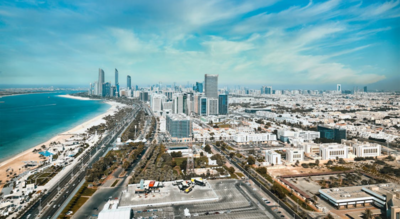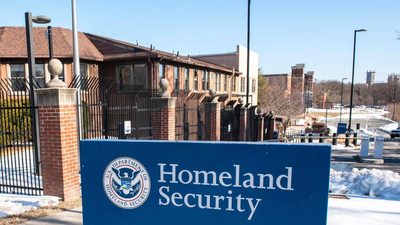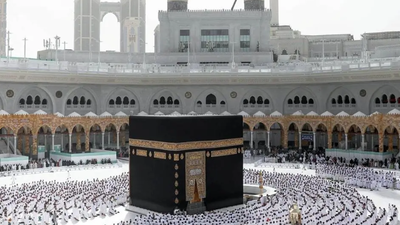Abu Dhabi’s non-oil trade sector delivered a standout performance in the first half of 2025, driven by a robust surge in exports, steady growth in imports, and a rise in re-exports. The 34.7% year-on-year increase reflects the emirate’s strong economic fundamentals, its strategic shift towards diversification, and an ongoing transformation into a global trade and logistics hub.
Trade figures reflect strong economic momentum
In the period from January to June 2025, Abu Dhabi’s non-oil foreign trade reached AED195.4 billion ($53.2 billion), a significant increase from AED145 billion ($39.4 billion) during the same timeframe in 2024. This 34.7% growth was supported across all major trade categories:
- Exports rose 64%, reaching AED78.5 billion ($21.3 billion) compared to AED47.9 billion ($13 billion) in the first half of 2024.
- Imports climbed by 15% to AED80 billion ($21.8 billion), up from AED70 billion ($19 billion).
- Re-exports increased 35%, surpassing AED36 billion ($9.8 billion), compared to AED26.6 billion ($7.2 billion) during the corresponding period last year.
The strong performance comes amid ongoing efforts to strengthen non-oil sectors, with trade becoming a core pillar of Abu Dhabi’s broader economic expansion strategy.
Strategic policies and infrastructure as growth catalysts
Multiple structural and policy factors have underpinned the growth of Abu Dhabi’s non-oil trade. The emirate continues to invest in infrastructure, logistics, and digital innovation to enhance trade capabilities. Ahmed Jasim Al Zaabi, Chairman of the Abu Dhabi Department of Economic Development (ADDED), credited the growth to strategic economic planning and agile execution. “Abu Dhabi’s non-oil foreign trade steady performance in H1- 2025 reaffirms our position as a global economic powerhouse, bridging East and West, North and South. Our consistent growth, amid the challenges in the international trade and global economy, reflects the strengths of our long-term economic planning, decisive policy execution, and our commitment to enabling fair and free exchange of goods, services, and innovations,” he said. Al Zaabi added that the emirate is prioritizing the streamlining of trade procedures, smart system integration, and service optimization to position Abu Dhabi as one of the world’s most business-ready economies. These advancements are also reinforcing its role as a key node in global supply chains. Director-General of Abu Dhabi Customs, Rashed Lahej Al Mansoori, emphasized the role of innovation and partnerships in facilitating this growth. “ The growth in non-oil foreign trade during the first half of 2025 reflects the success of Abu Dhabi’s economic strategies, and highlights the effectiveness of efforts made by Abu Dhabi Customs, in collaboration with strategic partners, to facilitate trade. These efforts are driven by the adoption of advanced systems, innovations, and digital technologies.” He noted.He emphasised the continued commitment to developing a proactive and agile customs ecosystem that supports global supply chains and enhances the emirate’s competitiveness as a regional and international hub for trade and business.Al Mansoori concluded by reaffirming that Abu Dhabi Customs is committed to providing top-tier services and streamlined procedures that speed up customs processes and foster deeper collaboration with domestic and international partners, efforts that contribute to sustainable growth, support the evolving economy, and solidify the emirate’s presence in global trade.
Economic diversification and long-term vision
The surge in non-oil trade is part of a broader transformation underway in Abu Dhabi’s economy. In 2024, the emirate’s GDP reached a historic AED1.2 trillion ($326.4 billion), with the non-oil sector contributing AED644.3 billion ($175.2 billion)—a 6.2% increase from the previous year. This represents 54.7% of the total GDP, marking the highest non-oil share to date. Abu Dhabi’s strategy to reduce reliance on hydrocarbons includes targeted investments in manufacturing, tourism, aviation, and technology:
- In 2022, it launched an industrial strategy with AED10 billion ($2.72 billion) in funding across six programs, aiming to more than double manufacturing output to AED172 billion ($46.8 billion) by 2031.
- The tourism sector is projected to contribute 12% to GDP by 2030, up from 5% in 2023.
- Sectors like artificial intelligence and aviation have also seen fresh capital injections as part of Abu Dhabi’s long-term economic blueprint.
This economic vision is being realized through international partnerships as well. The UAE has signed 28 Comprehensive Economic Partnership Agreements (CEPAs) to broaden trade access. According to a report from The National, ten of these, signed with countries including India, Indonesia, Israel, and Turkey, are currently operational. Additional agreements with nations such as Australia, South Korea, Vietnam, Kenya, and others are pending implementation. Negotiations have concluded with the Philippines, Morocco, and Armenia, further expanding Abu Dhabi’s access to global markets.
Logistics, location, and competitive advantage
Abu Dhabi’s strategic location, world-class infrastructure, and investor-friendly reforms continue to position it as a global logistics hub. The development of modern airports, seaports, and transport networks has significantly improved the movement of goods and efficiency of supply chains. The effectiveness of these systems has been crucial in enabling the 2025 trade growth. Enhanced customs clearance services, coupled with digital integration and the use of smart technologies, are accelerating cross-border trade. Officials believe that this momentum is not short-lived. Abu Dhabi Customs reiterated its commitment to “best-in-class” procedures that not only facilitate trade but also foster sustainable growth. This is aligned with the UAE’s national objective of building a future-ready economy less dependent on oil.






